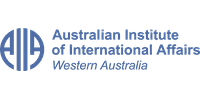Young Professional Network: Simulating Future Crises in the Indo-Pacific -The Shadow of Chinese Nationalism
In the internet era, diplomatic crises are likely to be handled by governments acting under some level of scrutiny of domestic audiences. Authoritarian states such as the PRC have significant capabilities for attenuating public attention and shaping citizens' interpretations of the situation. But there are still a range of high-stakes scenarios — such as a serious US-China naval clash in disputed waters, or a Taiwanese independence declaration — in which public pressure could make an authoritarian state more likely to escalate a crisis.
This crisis simulation event offers student and young professionals a unique opportunity to explore and analyse the role of Chinese public opinion in international crises. By actively engaging in the crisis scenario and examining preliminary survey findings, participants will gain valuable insights into the complexities of managing crises in the context of public sentiment. The event aims to enhance their understanding of the evolving dynamics in international relations and their implications for decision-making processes.
The Ashburton Room, Forrest Hall
21 Hackett Dr., Crawley WA 6009
Crawley, Western Australia, Australia
Show on map
Speaker

Dr Andrew Chubb
Read Bio
Tickets
- Member Ticket
Doors open at 6:00pm. Presentation begins at 6:30
- Member Price A$5
- Non Member Ticket
Doors open at 6:00pm. Presentation begins at 6:30
- A$5
The Australian Institute of International Affairs for WA
The Australian Institute of International Affairs (AIIA) is an independent, non-profit organisation seeking to promote interest in and understanding of international affairs in Australia.
The WA Branch of the AIIA was founded in 1947 by Professor Fred Alexander of the University of WA, who became its first President. Like the earlier established branches in the other Australian states, the WA Branch was modelled on the British Royal Institute of International Affairs, based at Chatham House in London.
The WA Branch has maintained a steady membership, including many prominent West Australian and national leaders. Successive State Governors have served as the Branch's Official Visitor. The aim of the institute is to be an independent and non-political body that facilitates and encourages the study and debate of international questions.
Membership fees includes a subscription to The Australian Journal of International Affairs as well as two tickets at the member price to each of our our monthly meetings where you will learn about developments in international affairs of concern to the people of Western Australia. We rely on membership contributions and sponsorship of special events to keep our association running: we receive no core funding from government.



